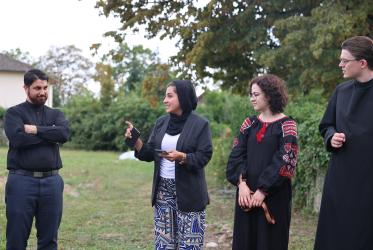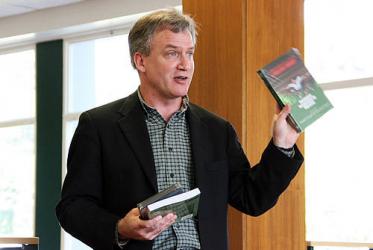Displaying 1 - 10 of 10
11 January 2024
Ukraine: Responding to humanitarian need
08 September 2022
Pope Francis at the World Council of Churches
31 May 2018
Seminar explores how populist rhetoric leads to racism
07 September 2017
After Busan: A pilgrimage of justice and peace
29 January 2014
Migration and theological method
09 March 2011








